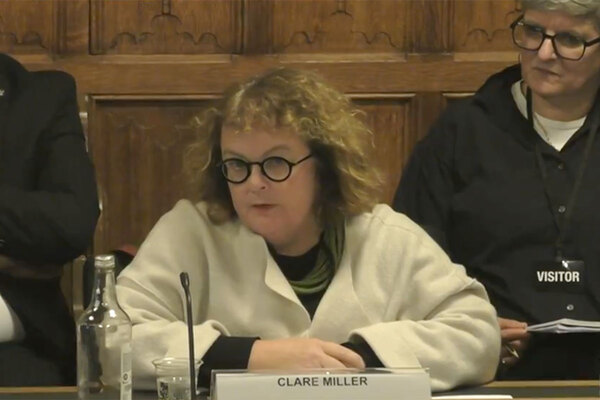
Adrian Plant is director of SOWN (part of Leaders Romans Group)
The government needs to get behind shared ownership in the same way it did with Help to Buy
The government must address the gap left by Help to Buy, writes Adrian Plant
It was a blow to SOWN and others in the shared ownership sector when it was announced in early January that housing associations in England are due to have planned spending on new affordable homes cut in 2024. Following research by Centrus, it is anticipated that funding for this year will be reduced by 9% (£1.5bn) compared with the previous year’s forecast.
Over the past year, we have seen demand consistency exceed supply, and the gap is continuing to grow. This is partly due to the slowdown in housebuilding.
More than half a million new developments have been put on hold during the past five years and official data shows that only 19% of planning applications are processed within the recommended 13 weeks, compared with 57% a decade ago. Because around half of all new affordable housing is delivered through ‘planning gain’, the reduction in housebuilding (through lack of demand) results directly in a reduction in shared ownership properties (the demand for which increases in a challenging market).
As the already acute need for affordable housing increases, the planning system alone cannot keep up with the volume of new homes required. This may be exacerbated if the proposed Infrastructure Levy is introduced, because it would result in planning gain revenue becoming available for local authorities to spend on the many wide-ranging financial demands that they face in addition to housing.
Inevitably, given the economic downturn, demand for affordable housing, and shared ownership specifically, is extending to a wider demographic. As salaries fail to increase in line with inflation, the upper age is increasing. In fact, we are seeing a significant increase in the 65-plus demographic.
“Help to Buy benefited from a dedicated, widely recognised brand with an effective information campaign and website that pointed would-be purchasers in the direction of suitable products”
Shortly after the disastrous Mini Budget of 2022, the Commons Public Accounts Committee commented that targets for building affordable homes were “depressingly unattainable”. An additional 340,000 homes were needed to keep up with growing demand, it said, with a large proportion of these properties being affordable.
Perhaps the greatest reasons for increased the demand for shared ownership housing is the cessation of the government’s Help to Buy.
Although various initiatives aimed at first-time buyers remain, the absence of Help to Buy is very strongly felt. The scheme, which enabled buyers to buy with a 5% deposit using an equity loan worth 20% of the price of a new build home (40% in London), aided the purchase of almost 390,000 new build homes.
During this time, £24.7bn of government loans were advanced to support homebuyers, allowing sales of houses worth £109.2bn to go ahead. Just under 85% of homes sold under the scheme were sold to first-time buyers.
In the wake of Help to Buy, the government has put in place a range of means through which first-time buyers (and in some cases others) can purchase a property with financial support. These include First Homes, Deposit Unlock, discount market sale, discount full ownership, intermediate rent, Lifetime ISA, London Living Rent and Rent to Buy.
But the demand for shared ownership continues to increase. Approximately 202,000 households live in shared ownership homes in England – less than 1% of all households. Demand varies across the regions, with demand highest in areas where affordability is most stretched – largely in the South of England.
Our schemes in London include Clarendon on Hornsey High Street in the heart of north London and Ferry Island North Heart of Hale, located just moments from Tottenham Hale Station. Both have proved extremely popular, attracting a wide demographic.
“Perhaps the greatest reasons for increased the demand for shared ownership housing is the cessation of the government’s Help to Buy”
So what needs to change to replicate this success elsewhere?
The government’s Affordable Homes Programme is an important foundation to build from, but it so far fails to comprehensibly address increased demand.
My view is that the government needs to get behind shared ownership in the same way it did with Help to Buy. Help to Buy benefited from a dedicated, widely recognised brand with an effective information campaign and website that pointed would-be purchasers in the direction of suitable products. There are many myths around shared ownership which need to be addressed, but doing so comes at a cost.
There is also a need to reconsider how funding for shared ownership is derived, especially in the context of a potential recession and changes to the planning gain system.
Helping first-time buyers and others to get on to the property ladder is vital, not only for the individuals involved but for the country’s social and financial prospects. We have a great product and great demand for it – but more needs to be done to fully realise this potential.
Adrian Plant, director, SOWN (part of Leaders Romans Group)
Sign up for our daily newsletter
Already have an account? Click here to manage your newsletters












